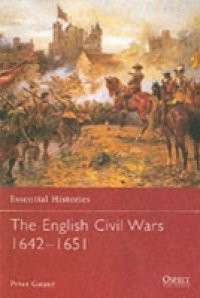Despite the wealth of British Civil Wars studies, little work addresses the nature of military leadership effectiveness in terms of the eventual result -parliamentary victory. It is no longer sufficient to credit religion, economics, localism or constitutional concepts for the outcome without considering the role of effective military leadership. The study of human conflict illustrates a simple, immutable truth -the finest, most inspired or motivated, well-trained, disciplined or experienced force is quite like a modern cruise missile. Without effective guidance, it is no more than a collection of very expensive parts.For the general military history reader, the work provides a concise strategic and operational narrative of the British Civil Wars of 1642-51 in northern England and Scotland. For historians, it offers an additional causative explanation for ultimate parliamentary victory. As a study of effective military leadership, it proposes, through a case study analysis based on a framework of characteristics and behavior of specific commanders from the wildly successful to the abysmal failure, a model of effective military leadership for present and successive generations of military, naval and air officers at all levels of command.




















